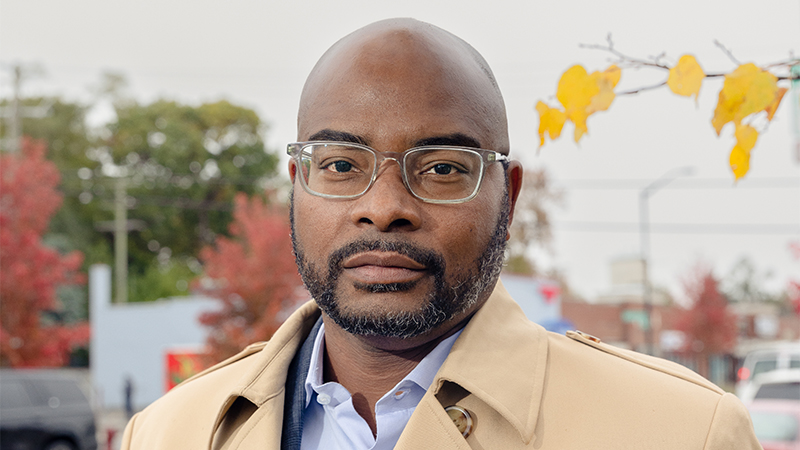The 2023 Detroit auto show captured the attention of spectators around the globe with its splendor–from electric vehicle advancements, to hover bikes and amphibious aircrafts. As exciting as this was, there was one takeaway that caught my attention: Detroit is back.
The economic indicators back this up. Not only is the city on track this year to restore the number of jobs we lost during the pandemic, but it is also likely that, by 2026, we will add 8,500 more jobs than we had in 2019. By and large, Detroiters are also better off economically than they were after the city filed for bankruptcy–per capita income has risen 25 percent and property values have climbed an average of 30 percent, marking the fifth straight year of growth.
While these signs of progress are promising, it's clear that the region's recovery is anything but equal. As with many cities across the country, persistent racial inequities have constrained growth–holding us back from achieving our full potential.
A new report, Advancing Workforce Equity in Metro Detroit, which JPMorgan Chase supported in partnership with Policy Link and the Detroit Area Workforce Funders Collaborative, sheds light on the city's deep racial disparities and their economic toll. The report shows that the racial wealth gap cost the Detroit Metro area $28 billion in unrealized GDP in 2018. In other words, the Detroit region could have seen a 10 percent increase in GDP had we eliminated the racial gaps in employment and wages for the working-age population.
We have to face this hard truth, not only because there is a moral obligation to do so, but because our workforce is growing more diverse—and the economic costs of racial gaps are adding up. Workers of color make up a third of Detroit's labor market, although they are more than twice as likely to experience working poverty compared to their white counterparts.
These findings reinforce the important work that policymakers, educators and nonprofits are doing to develop a racial equity agenda. Yet they can't do it alone: businesses must collaborate closely with local leaders to prepare Detroiters for the jobs that they will need to succeed in the future. At the same time, it is up to us to do our part to close the racial income gap, especially considering that one in five Black workers who attain a four-year degree still find themselves earning a median wage that is that is $8 per hour–23 percent lower than white workers.
At JPMorgan Chase, we are laser-focused on equipping workers with the skills they need to compete for well-paying, in-demand job–focusing on Black, Hispanic and Latino workers since they are most at risk of automation-driven displacement.
In partnership with the Detroit Employment Solutions Corporation, we are supporting demand-driven training programs in healthcare, information technology and skills trades. We are also continuously improving our own hiring practices by reducing employment barriers for Detroiters, including those with criminal records. As part of our continued investment in Detroit, we recently launched a new virtual call center pilot that provides access to a steady income and helps local residents from underserved neighborhoods build strong career pathways at the firm.
Investing in our people is an investment in our future. Detroiters are a true testament of the tenacity of this city – and we are proud to be a small part of the this city's equitable comeback.




